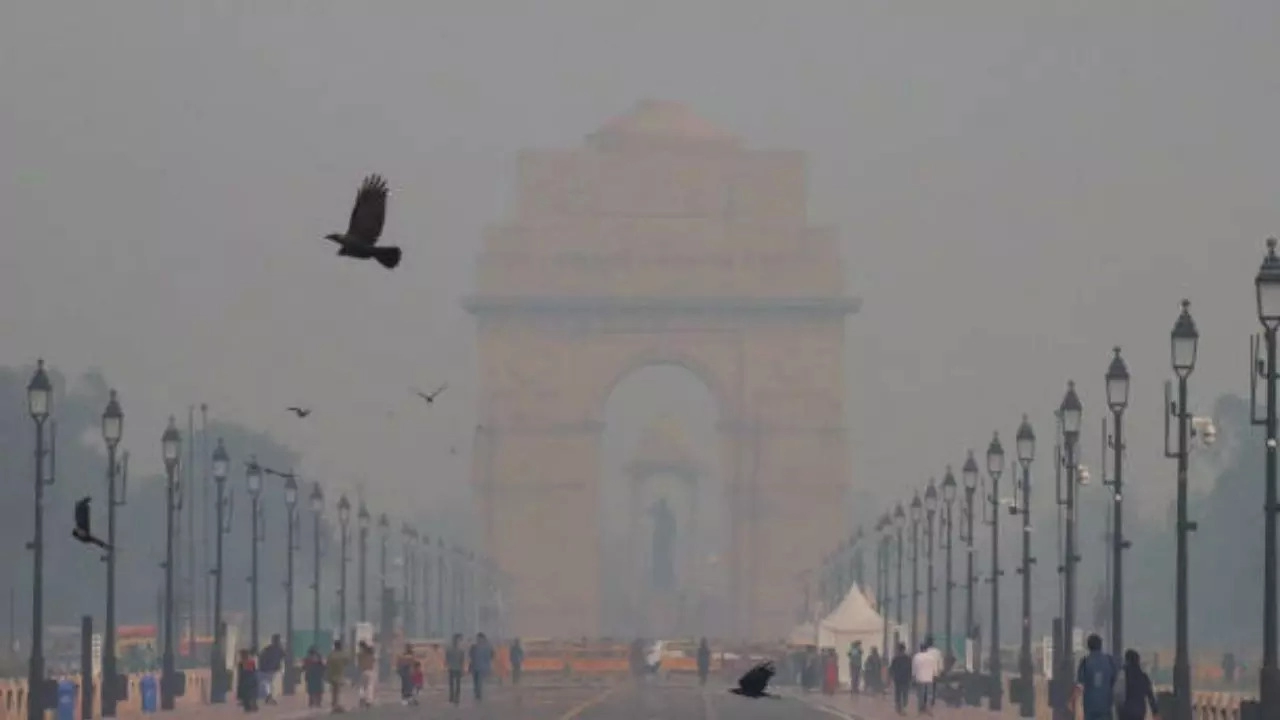Delhi Air Pollution: 7 Chronic Health Conditions Linked To Poor Air Quality
Oct 26, 2024
News

Chronic Health Conditions Caused Due To Air Pollution
The air quality in the capital has been deteriorating. With Diwali approaching, the air quality is expected to worsen. The Air Quality Index (AQI) in Delhi was recorded at 283 in the ‘poor’ category as the national capital was engulfed in a layer of smog. According to a report in Financial Express, the AQI at Anand Vihar was recorded at 218, 245 at Punjabi Bagh, 276 at India Gate and 288 at Jhilmil Industrial area at 8 AM. AQI between 0-50 is considered “good”, 51-100 is “satisfactory”, 101-200 is “moderate”, 201-300 is “poor”, 301-400 is “very poor”, 401-500 is “severe” and above 500 is a “severe plus”.
According to the World Health Organisation (WHO), air pollution is “contamination of the indoor or outdoor environment by any chemical, physical or biological agent that modifies the natural characteristics of the atmosphere.”
It adds that outdoor and indoor air pollution cause respiratory and other diseases and are important sources of morbidity and mortality. “WHO data show that almost all of the global population (99%) breathe air that exceeds WHO guideline limits and contains high levels of pollutants, with low- and middle-income countries suffering from the highest exposures.”
Air pollution can cause several health issues and it is not just respiratory diseases. Here, take a look at the chronic health conditions linked to air pollution.
Respiratory Diseases
Poor air quality is linked to respiratory problems like asthma, chronic obstructive pulmonary disease (COPD) and bronchitis. Pollutants such as particulate matter (PM2.5) irritate the airways, thereby, causing inflammation that worsens these conditions.
Cardiovascular Disease
Air pollution, especially from fine particles and nitrogen dioxide (NO₂), can cause cardiovascular diseases like heart attacks, hypertension and stroke. Pollutants enter the bloodstream, thereby, causing oxidative stress and inflammation in blood vessels. This eventually increases the risk of blood clots and arterial damage.
Lung Cancer
Long-term exposure to pollutants, especially carcinogenic compounds increases the risk of lung cancer. Substances like benzene and polycyclic aromatic hydrocarbons (PAHs) damage lung cells which lead to mutations and the development of cancer.
Childhood Developmental Delays
Children exposed to high levels of air pollution may face developmental delays, both physical and cognitive, and an increased risk of conditions such as autism spectrum disorders.
Neurological Disorders
Emerging studies link poor air quality to neurological conditions like Alzheimer’s and Parkinson’s diseases. Fine particles can enter the brain through the bloodstream or olfactory nerve. This causes inflammation and brain cell damage over time leading to cognitive decline.
Reproductive Health Issues
Polluted air is also linked to complications in reproductive health, including reduced fertility, preterm birth and low birth weight. Toxins such as heavy metals and endocrine-disrupting chemicals in polluted air can impact hormonal function. This affects foetal development and maternal health.
Weakened Immune System
Exposure to polluted air can weaken the immune system, thereby, making the body more susceptible to infections and illnesses. Pollutants impact immune cells and reduce the body’s ability to fight pathogens. This increases respiratory and other infections.
Get Latest News Live on Times Now along with Breaking News and Top Headlines from Health and around the world.



